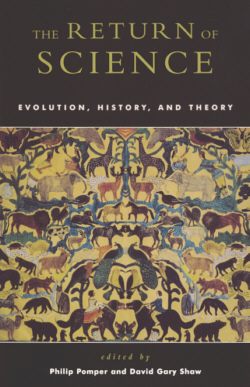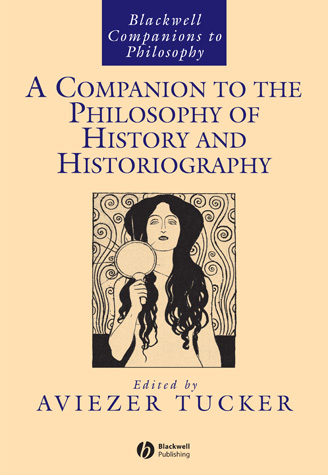
Yes, I'd like to see this page in English
Gibt es überhaupt historische Gesetze? Folgt der Verlauf der Geschichte tatsächlich vorherbestimmten Bahnen?
Viele Denker der Vergangenheit hätten diese Fragen bejaht; der Glaube an historische Gesetzmäßigkeiten lässt sich durch die Jahrtausende zurückverfolgen. Der griechische Historiker Polybios vertrat zum Beispiel in seinen Historien das Konzept der anakyklosis, das die zyklische und „naturgemäße" Wiederkehr verschiedener Verfassungsordnungen beinhaltet.
Ungefähr bis zur ersten Hälfte des zwanzigsten Jahrhunderts reicht die Kette von historischen und philosophischen Arbeiten, die in dieser Tradition stehen. In jüngerer Zeit hingegen ist der Begriff der historischen Gesetze extrem unpopulär, und kaum ein Historiker (Archäologe, Geschichtsphilosoph etc.) würde sich trauen, ihn noch zu verwenden.
Maßgeblich zu dieser Situation beigetragen haben die Philosophen Karl Popper und Isaiah Berlin mit ihren Attacken gegen den „Historischen Determinismus", die Idee, wonach der Lauf der Geschichte durch strenge und unabänderliche Gesetze vorherbestimmt ist.
Allerdings hat der Historiker Edward Hallett Carr schon in den sechziger Jahren darauf hingewiesen, dass die Angriffe von Popper und Berlin eigentlich ins Leere gehen, weil eine derart extreme Version von historischer Vorherbestimmung von niemandem mehr ernsthaft vertreten wird.
Und man darf nicht das Kind mit dem Bade ausschütten: Wenn die Geschichte auch nicht unabänderlich determiniert ist, so muss das ja nicht heißen, dass es überhaupt keine Regelmäßigkeiten in historischen Prozessen gibt.
Mehr über dieses Thema zu lesen gibt es in einem Aufsatz in History & Theory von 1999. Die Perspektive ist dabei die eines Naturwissenschaftlers, der von außen auf die historischen Disziplinen schaut: In den Naturwissenschaften ist die Existenz von Gesetzen allgemein akzeptiert – was kann man daraus für (potentielle) historische Gesetze lernen? In erweiterter Form ist der Artikel als Kapitel in einem Buch erschienen:
|
Philip Pomper und David Gary Shaw (Hrsg.): The Return of Science: Evolutionary Ideas and History. 320 Seiten, Rowman & Littlefield Publishers, Lanham, April 2002, ISBN 0-7425-2160-5 (Hardcover), 0-7425-2161-3 (Paperback). Kaufen kann man es zum Beispiel hier. Verlagstext: Social scientists, philosophers, and mathematicians have adapted evolutionary theory for use in a variety of disciplines for several decades, but until now historians have lagged behind. In The Return of Science, several distinguished historians join prominent scholars from a wide range of disciplines to debate the applications of evolutionary theory to cultural, social, economic, and political phenomena. The contributors offer original theoretical approaches and deal with issues such as the benefits, limits, and dangers of using evolutionary theory in the social sciences, the problem of defining units of evolution, the use of mathematics in historical study, and the appropriateness of chaos theory in historical study. Originally published as part of the journal History and Theory, these revised and updated essays are a valuable resource for historiographers. List of Contributors: David Gary Shaw, William H. McNeill, Albert F. H. Naccache, Bruce Mazlish, Donald E. Brown, Doyne Dawson, Martin Stuart-Fox, Philip Pomper, Alonso Pena, Noel Bonneuil, Joseph Fracchia, R. C. Lewontin, and Stephan Berry. About the Authors: Philip Pomper is William F. Armstrong Professor of History at Wesleyan University. David Gary Shaw is associate professor of history at Wesleyan University. |
 |
Ein neuerer Beitrag von mir beleuchtet das Thema aus einem anderen Blickwinkel. Dabei geht es vor allem um aktuelle Entwicklungen innerhalb von Geschichte und Archäologie. Diese Arbeit ist ein Kapitel in dem Band:
|
Aviezer Tucker (Hrsg.): A Companion to Philosophy of History and Historiography. Blackwell, Oxford, Oktober (UK) / November (US) 2008, ISBN 9781405149082. Kaufen kann man es zum Beispiel hier. Beschreibung des Herausgebers: The purpose of the Blackwell Companion to Philosophy of History and Historiography will present the current stage of philosophical research and examination of history and historiography. The emphasis will be on an updated analysis of the contemporary problems of the philosophy of history; only a few entries will be devoted to the main historical figures. The companion will cover all the main approaches and schools in the philosophy of history, mostly analytic philosophy, but also other schools and approaches. Anybody from a freshman undergraduate to a professional philosopher should be able to find answers to any question they may have about the philosophy of history and historiography. Most of the problems of the philosophy historiography are epistemic: how do we gain knowledge of the past; what is the status of this knowledge; what is the relation between historiography, representations of past events and history, past events. Metaphysical problems concern the status of the past and the meaning of history. Ethical problems include the judgements we can make about the conduct of people in the past and the ethics of history writing. A Companion to Philosophy of History and Historiography is divided into five sections: Major Fields, Basic Problems and Concepts of Philosophy of Historiography, Meta-discipline and Inter-discipline, Approaches to Philosophy of History, and Philosophers of History and Historiography. |
 |